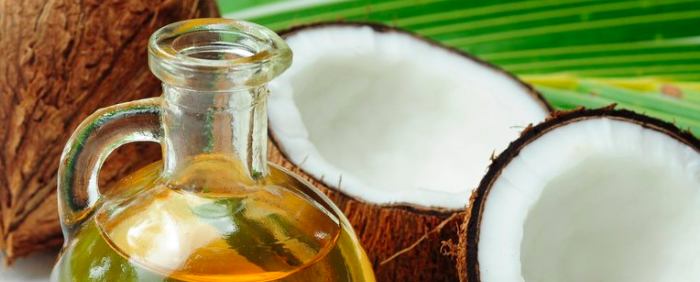
Coconut oil, source of benefits or rather dangerous for health? Find out if you can use it safely.
Coconut oil, benefits and dangers: an oil good or bad for the health?
Coconut oil is increasingly used for cooking, which is why it is now found on the shelves of several supermarkets. If you think you’ve heard of both the benefits and the health risks of coconut oil, you’re not dreaming.
This is because nutrition experts are questioning the miraculous health benefits of coconut oil. “It is important to note that among vegetable oils, coconut oil and palm oil contain the highest concentration of saturated fatty acids, ” says Linda Kennedy, a registered dietitian at FitNut Consulting in Calgary. , in Alberta. Recall that an excess of saturated fat can increase the level of bad cholesterol (LDL).
Coconut oil, health benefits and benefits
“Having said that, oil extracted from coconut meat is an excellent cooking oil because of its high resistance to heat,” said Nicole Fetterly, a Vancouver dietitian.
In addition, according to Linda Kennedy, virgin coconut oil undergoes fewer transformations and has fewer added products than other types of vegetable oils. “Many vegetable oils are filled with chemicals because of the refining process. For example, manufacturers use a whitening process to obtain a beautiful clear oil that appeals to consumers. In addition, bleaching requires the use of deodorants.
Controversy surrounding the dangers of coconut oil
Coconut oil enthusiasts claim that it has a number of benefits, including its heart benefits and its antimicrobial properties, which prevent the proliferation of bacteria. Scientific studies have, however, greatly qualified these hasty conclusions.
In addition, coconut oil is composed of fatty acid molecules (triglycerides) that form a chain of medium length. “Medium chain fatty acids are easier to assimilate than long chain fatty acids. But it remains to be proven whether this has a beneficial effect on cholesterol. For the rest, any other statement about the therapeutic effects of coconut oil is without scientific foundation and remains to be proven, “launches the dietitian Linda Kennedy.
Conclusion on coconut oil
While there are some benefits to coconut oil, everyone agrees that coconut oil in processed foods such as crackers, biscuits and non-dairy coffee dyes is bad for your health. This is because the hydrogenation that coconut oil undergoes transforms fat into trans fatty acids, which increases the risk of cardiovascular disease.
In addition, according to the Université de Montréal’s Nutrition Reference Center, virgin coconut oil can be used sparingly in cooking, but it should not replace other fats such as olive oil or olive oil. canola. “In a context where a multitude of good vegetable oils are available on the market, coconut oil is probably not the best choice to reduce your risk of cardiovascular disease,” reads in their article published in this subject.
In addition, several health organizations, including the Heart and Stroke Foundation of Canada and the US Food and Drug Administration (FDA), are of the opinion that there is a limited amount of fat in diets. and in daily caloric intake.
“That said, if you’re thinking about including coconut oil in your diet, make sure you use a 100% cold pressed oil,” says the specialist. Use it sparingly and use caution, as with any food that contains saturated fats. ”
In short, despite its few promising benefits and benefits that will need further scientific study, coconut oil is unfortunately not a “miracle” food and must be consumed in a reasonable way. After all, the Variety and moderation have a better taste!
But while not all fats are equal, Sanders, like most food scientists, remains unconvinced by the health claims for coconut oil or the suggestion that the saturated fat in coconut oil is less harmful than other saturated fats. There is, he says, insufficient evidence for such claims.